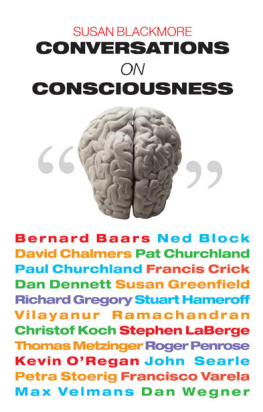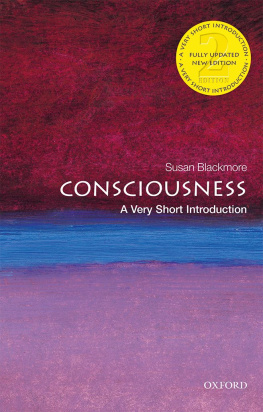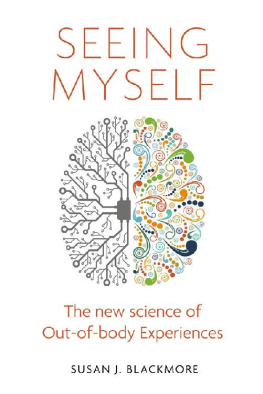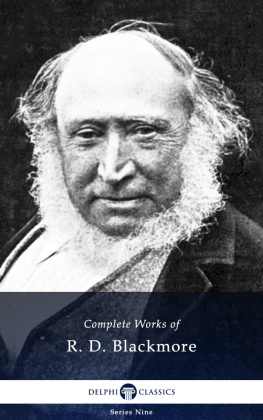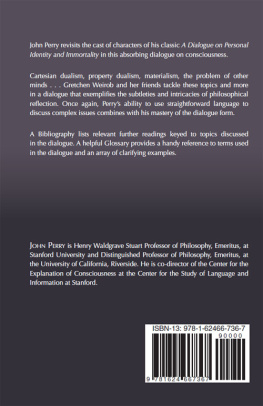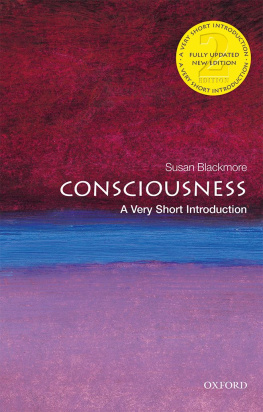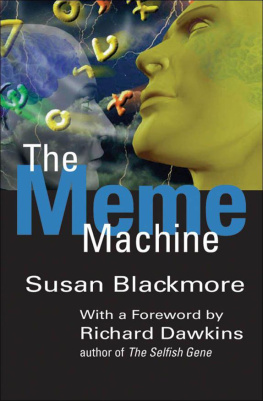CONVERSATIONS ON CONSCIOUSNESS
Susan Blackmore
Great Clarendon Street, Oxford ox2 6dp
Oxford University Press is a department of the University of Oxford.
It furthers the Universitys objective of excellence in research, scholarship, and education by publishing worldwide in
Oxford New York Auckland Cape Town Dar es Salaam Hong Kong Karachi Kuala Lumpur Madrid Melbourne Mexico City Nairobi New Delhi Shanghai Taipei Toronto
With offices in Argentina Austria Brazil Chile Czech Republic France Greece Guatemala Hungary Italy Japan Poland Portugal Singapore South Korea Switzerland Thailand Turkey Ukraine Vietnam Oxford is a registered trade mark of Oxford University Press in the UK and in certain other countries
Published in the United States by Oxford University Press Inc., New York
Susan Blackmore 2005
The moral rights of the author have been asserted Database right Oxford University Press (maker) First published 2005
All rights reserved. No part of this publication may be reproduced, stored in a retrieval system, or transmitted, in any form or by any means, without the prior permission in writing of Oxford University Press, or as expressly permitted by law, or under terms agreed with the appropriate reprographics rights organization. Enquiries concerning reproduction outside the scope of the above should be sent to the Rights Department, Oxford University Press, at the address above You must not circulate this book in any other binding or cover and you must impose this same condition on any acquirer British Library Cataloguing in Publication Data Data available
Library of Congress Cataloging in Publication Data Data to follow
ISBN 0 19 280622-X
EAN 978-0-19-2806222
1 3 5 7 9 10 8 6 4 2
Typeset by RefineCatch Limited, Bungay, Suffolk Printed in Great Britain by
Clays Ltd., St Ives plc
Contents
Introduction
In the spring of 2000 I was preparing for a trip to Tucson, Arizona, for a conference called Toward a Science of Consciousness. The first of these now-famous conferences had been held in 1996and Stuart Hameroff and Dave Chalmers both tell stories about it. Tucson II, in 1998, had been bigger and already begun attracting a lot of attention, and I had been invited to take part in a plenary session on parapsychology. I had much enjoyed the whole event with its eclectic mix of neuroscientists, philosophers, and spiritual seekers. So I was now looking forward to the third, Tucson 2000.
And I had an idea. I do a fair bit of work for BBC radio and television, and specially enjoy making radio programmes because of the freedom you get to express difficult ideas in depth. As the old joke goes: the pictures are better on the radio. So I contacted John Byrne, a producer I knew at BBC Bristol, and asked whether we might be able to make a programme for Radio 4 about consciousness. As it happened, our proposal never made it through the final stages of the complicated BBC selection process, but never mind. John lent me some broadcast quality recording equipment and I set off to Tucson to see if I could interview some of the great experts on consciousness that I knew would be there.
The process was great fun. It gave me a way of introducing myself properly to people I hardly knew, and an excuse for having in-depth conversations with old friends. I squeezed the interviews into gaps between the presentations, early in the morning, late at night, or during the one free afternoon; we did them in hotel rooms, in the plaza outside the conference hall, or out in the desert nearby. As we talked I came more and more to appreciate why the conference can only be called Toward a Science of Consciousness. There is so little agreement. And I learned such a lothow feeble was my understanding of many of the theories I knew about; how different were some of the people when you got to ask them face-to-face what they really meant; how utterly confusing the whole field is. When the radio plan fell through I just wanted to keep going, and keep going I did. John kindly lent me the equipment again and I did the same at other conferences; at both the following Tucson events, and at two conferences of the Association for the Scientific Study of Consciousness, in Brussels and in Antwerp.
Eventually the idea of this book took shape. I realized that throughout the conversations I had been asking the same key questions, and there was almost no unanimity in the answers I received. These were the questions everyone was asking, and they lie at the heart of what it means to be human. I had had the good fortune to talk to some of the most famous names in the study of consciousness, and I could now share what I had learned by simply writing up my conversations.
As it turned out this was not as simple as it sounds. I thought it was important to let the people speak for themselves and not put my own spin on what they saidso I wanted to make the editing very light and keep as close as I possibly could to what they actually said. This meant doing the same with my own side of the conversations and sometimes I was horrified by how inarticulate I sounded. Even so, if I was keeping my conversationalists to their own words I would have to do the same with myself. So if you think some of my questions are inept then you know why.
But then I discovered that some people did not actually like what they had said. They wanted to rewrite their contributions in the style of a philosophy lecture or a neuroscience textbook. I resisted this very strongly; I urged them to let me keep their actual words, as spoken in the heat of a real live discussion in the desert or the lab or the hotel bar, as recorded on the tape. A few battles ensued which I did not enjoy. Some compro-mises had to be made, and I wish they had not. Almost always what people actually said was more fun, more lively, more interesting, and more daring than the words they wished to substitute. But when I really cared I stuck to my guns and the real words have remained in place. And if you want to know who argued about what I shall only say thisdont think you can guess because you are bound to be wrong. Just remember that, as close as I could get it, these are the real conversations that actually took place.
Once I had decided to do the book I realized that my collection of con-tributors was somewhat idiosyncratic, to say the least. Certainly if I had set out from the start to write a book called Conversations on Consciousness I would have done it quite differently. I would have made a clear plan about the balance of people to invite, and would not have some of the glar-ing omissions you may have thought of yourself. For these omissions I can only apologizeboth to the great minds I never conversed with, and to you the readers who might wish I had.
At the very end of the process I arranged a few last conversations. For one I have to thank Christof Koch for his kindness and quick intervention.
I interviewed Christof at Tucson 2004 in April, in a cramped corner of the hotel with the cleaner audibly vacuuming nearby. When we had finished he asked me why I wasnt including Francis Crick. I explained that I would dearly love to but I knew that Francis was already 88 and unwell, and there was no way I would want to trouble him, even though I was, as it happened, going to a conference in San Diego a few days later. Then Ill ask him said Christof Im sure hell say yes. He hates doing interviews about discovering DNA 50 years ago, but I know hed enjoy your questions about consciousness. And so it came about that a few days later Odile Crick warmly invited me to lunch and Francis and I spent a challenging hour battling over a topic dear to us both. Sadly this was the last interview Francis gave; he died in July 2004.
One final problem was a superficially trivial onewhich order to put the conversations in. I tried making up groups or themes and got in a muddle; I tried working out which people introduced important ideas most simply so as to put them first, but got hopelessly bogged down. At one point I favoured a friends delightful suggestion to order them by age.
Next page
